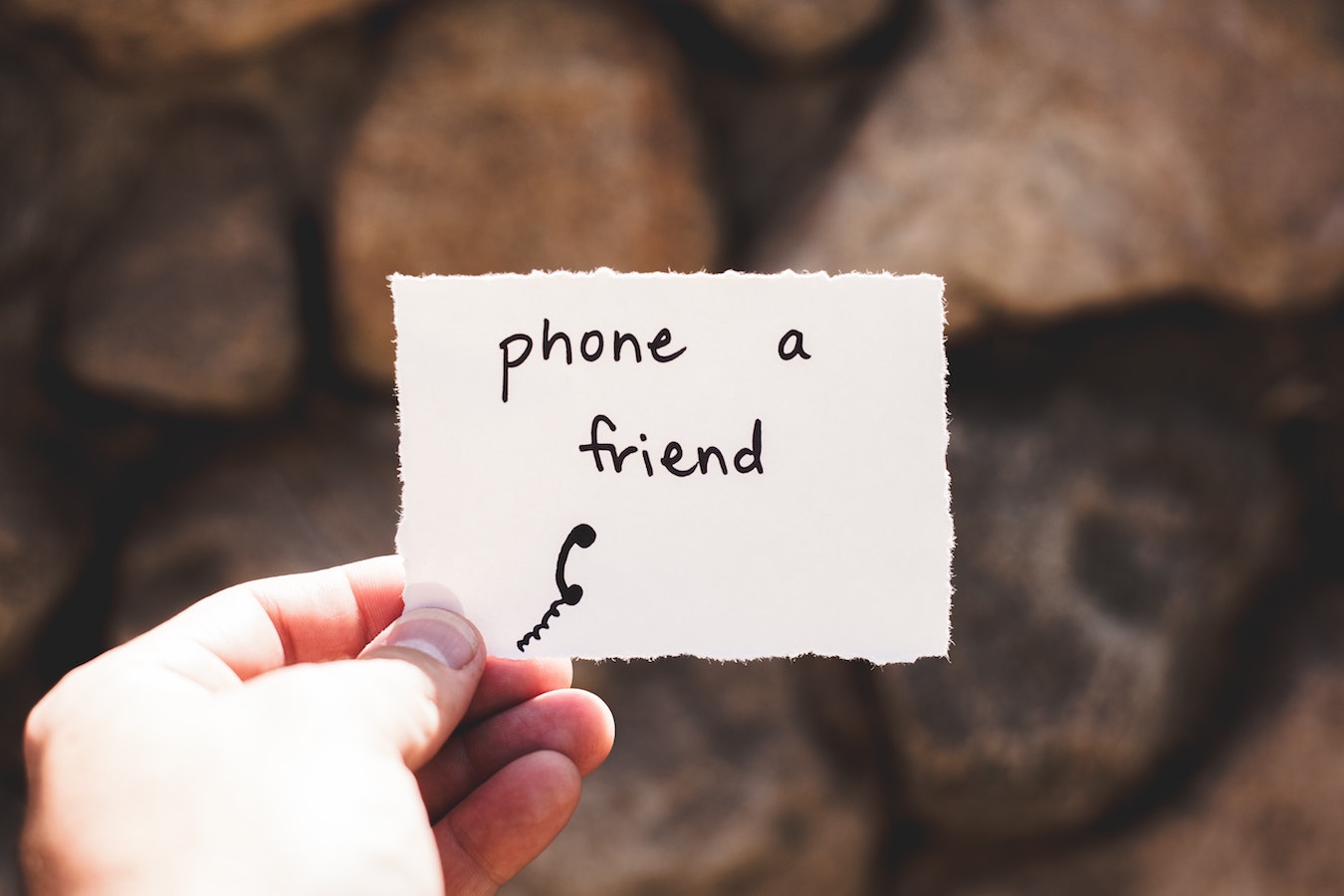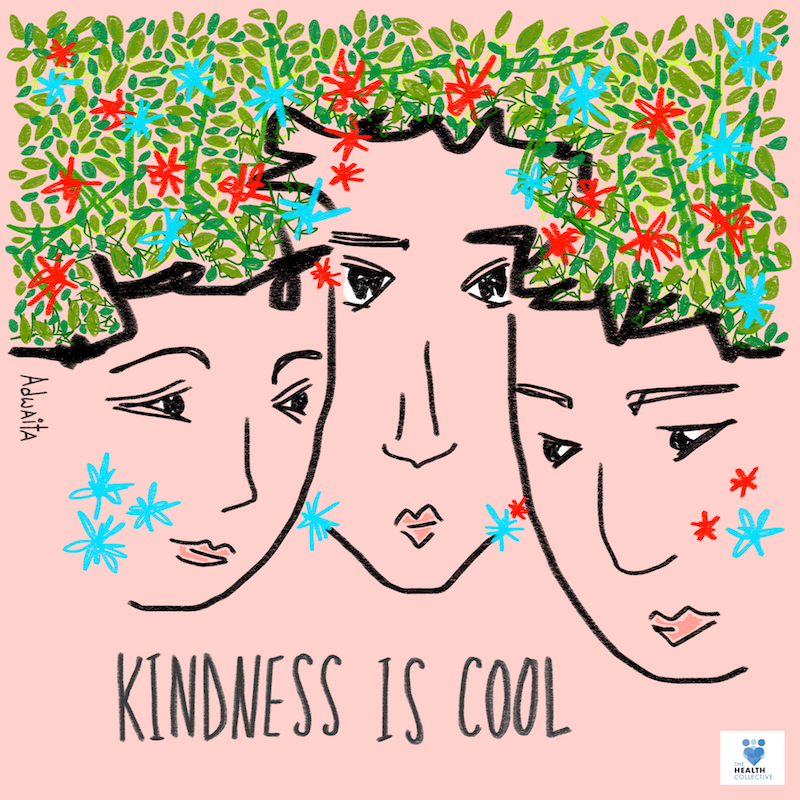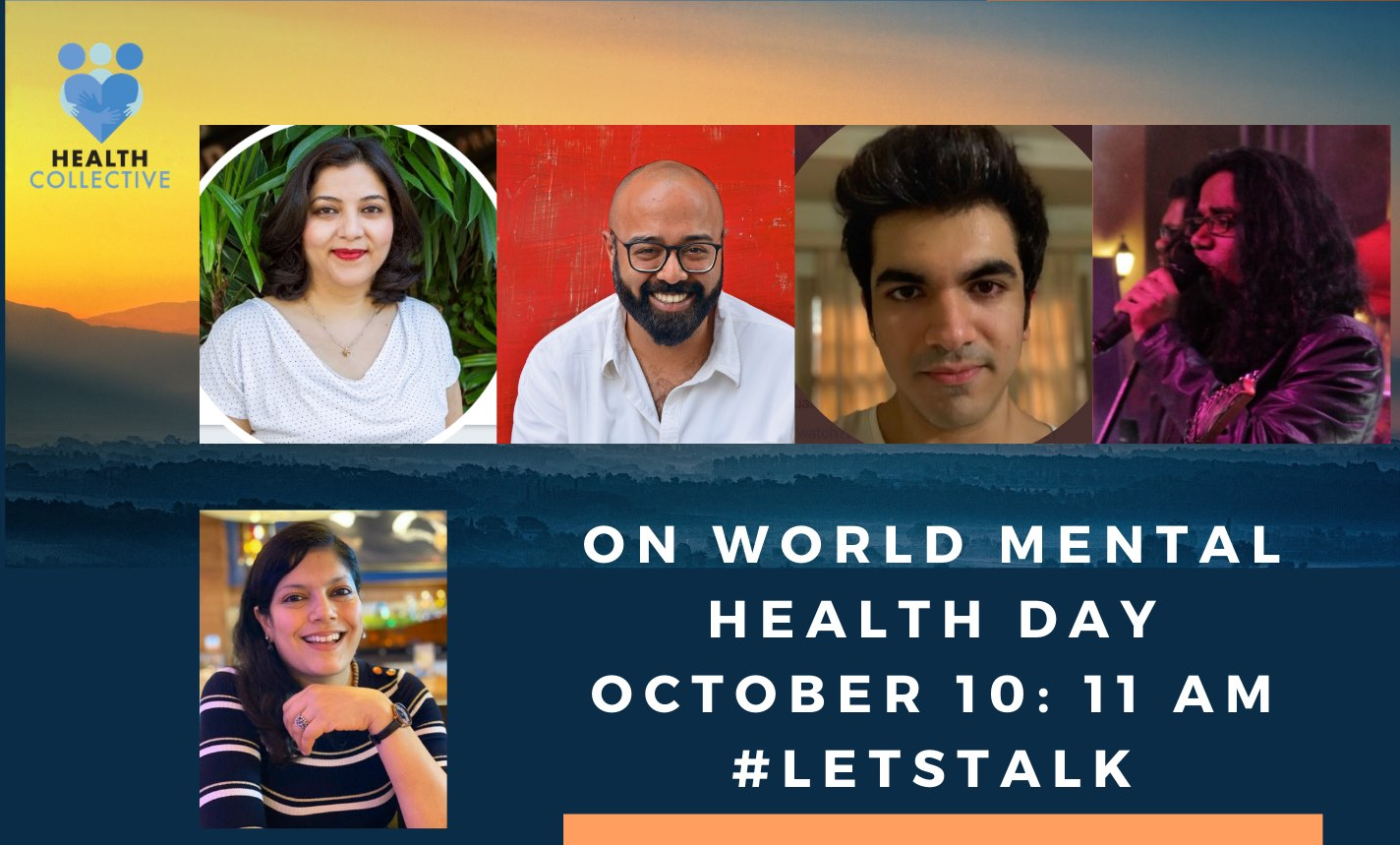How the Light Gets In: Attending to our Anxiety about COVID-19
This is the second part of a two-part series. Do Read Part One on Anxiety, Fear and the Covid-19 Pandemic here
By Scherezade Siobhan
Lately, I have been watching documentaries about folklore to stave off my own depressive and anxious phases during the lockdown. As people reel from the physical impact of the novel coronavirus, we are also seeing the severity of its strike on our mental health. The COVID-19 outbreak, the ensuing lockdowns as well as the breakdowns are firmly reminding us of how little of our whole self is valued when it isn’t attached to profitability. In one of the documentaries I was watching, I rediscovered folklorist and storyteller Martin Shaw who once wrote, “I offer retuning of intention”. This thought poured into me like liquid gold into a mould. In all that is deeply unsettling about our ongoing crisis, what we are being asked to do is retune our intention of how we want to be in this world going forth.
ALSO LISTEN: LET’S TALK: HOW ARE WE FEELING
Karl Marx’s theory of alienation describes the estrangement (Entfremdung) of people from aspects of their Gattungswesen (“species-essence”) as a consequence of living in a society of stratified social classes. This is quite apparent in our current predicament as we practice “social distancing” even though technically it should be referred to as physical distancing. In fact, if anything, now is the time for social togetherness and healing even when we aren’t physically collecting in place.
ALSO READ: PART ONE OF THIS SERIES

Anxiety around the rise of coronavirus cases world-wide is a combination of estrangement and helplessness. Working through disorganised and imbalanced states of thoughts, feelings and behaviours requires a little more than standard reminders about drinking water, even though drinking water is really good for you and we appreciate those reminders! From a neuroscientific perspective, severely anxious states show a direct change in moods and are further reflected in seemingly involuntary bodily sensations. However, the human brain is fairly elastic so the role of environmental factors can’t be dismissed. On a scale, clinical anxiety is an escalation of common negative emotions like fear, worry and apprehension which are necessary defensive reactions to threat perception. When the lopsidedness of being in an anxious state becomes a regularity rather than an exception, we need some additional help.
ALSO READ: HOW A BULLET JOURNAL HELPED ME COPE WITH ANXIETY
I am not averse to the word coping simply because as a lifelong survivor of clinical depression, I define coping as a way to encounter and move through my depressive state rather than some impersonal psychiatric term. That said, I have become more interested in how we attend to our feelings during these phases rather than just moving past them or running away from them.
Here is a collection of ways in which we can attend to our anxiety:
On a personal level –
- Rituals for rootedness – Anxiety can make us feel unmoored and invalidated. Figuring out 2 daily grounding rituals like breathwork exercises, listening to a calming playlist before bed, simple body scans, not checking news for an hour after you wake up et al can provide us with necessary anchoring. If these rituals are conducted right before sleeping and right after waking up, they work better because our sub-conscious is most available to us at these times. Don’t worry about falling off the wagon when you start the process of emotional nourishment. Habits take at least 3 weeks to fully register with us. Instead of shame or reprimand when you are unable to follow a ritual on certain days, give yourself breathing space and promise to return to it the next day.
- The Rosenberg Reset – Learn to sit with unpleasant feelings for short periods in time without trying to fight them or repress them. Dr Joan Rosenberg recommends that instead of running away from negative emotions, we can try and face them. This deflates their assumed size in our mind. It is an uncomplicated 90 seconds rule. If you feel overwhelmed, sit up comfortably, set an alarm for 90 seconds and then let the feeling flow through you. Name it. Observe how it moves through your body and the sensations it brings forth. Hold on to a chair or something sturdy or clutch a comfy pillow. Try to name the bodily sensations you experience. Loosen and shake your body as if you are dropping the feeling. After 90 seconds, the alarm sounds off and you need to bid farewell to the feeling by engaging yourself in something else. Make yourself tea or a snack. Switch on some music. Disengage.
- Radical Storytelling – Dark times call for radical courage. One of the reasons I have been so involved with the art of storytelling, apart from my name, is that stories are living relics of an age. They can be compasses. The stories we tell children allow them to invent a future for themselves. Childhood stories kept me alive through horrific abuse. They gave me hope because I would identify with the knights and the sorcerers who had the magical power to change the course of destiny. Later I realised that magic is nothing but our unconscious asking for an audience with us. They weren’t merely escapism, but a form of world-building. Through guided visualisation, imagine a world beyond its current predicament where hope and healing are possible. In his book, Snowy Tower, Shaw writes – “The business of stories is not enchantment. The business of stories is not escape. The business of stories is waking up.” We have the option of moving forth, of waking up through the stories we tell ourselves and each other. You can use short diary entries to document your stories.
- Limited Intake – And above all, know when the water has crossed the levee’s danger sign. Tune out. Cut out the intake of excessive information. Find 1-2 sources from where you pick up your news. Don’t fall into the rabbit of hole minute-by-minute updates via Twitter. We need to realise how much information our brains are designed to handle. This constant drip latched to our vein is not of any use. Unless you are an epidemiologist or someone working in the field of health and patient care, you don’t need to read every article or opinion piece. Give yourself a break.
On a collective level –
- Ask for and Offer Listening Space – This is harder when you have lived a life where help has been equated with weakness or was made inaccessible by oppressive structures. Asking for help can feel defeating when it should attest to our defiance. We have to take care of each other. Attending to ourselves means listening to and following that buried instinct of survival despite the challenges and upheavals. Being seen and heard can be empowering. Engage without judgment so you can move from a place of frustration to a place of curiosity and furthermore, empathy. This is especially important if you have the ability and the capacity to be present for those who are suffering the worst consequences of this outbreak.

By Adwaita Das for The Health Collective - Leverage your privilege – Feeling anxious about the injustices you witness on the news? Participate in change. Support a cause. It could be something small but it could still mean a lot to you and to others who benefit from it. I am a part of a group of MHPs who have decided to increase their monthly intake of pro bono cases while also acting as sounding boards for each other. My sister and friends have actively rallied for supporting and buying from local mom-and-pop shops who have been our lifelines during these difficult times. We have all realised that we don’t need “next day deliveries” on so many items and the toll such orders take on warehouse workers. I have clients who are volunteering to translate COVID-19 related information into several local languages and are passing it on to their house-help, support workers via WhatsApp. Check in with folks who are struggling to keep afloat. Confront ignorance at your dinner table. Offer a helping hand to people who have been systematically disenfranchised. Don’t wait for an overarching move to proceed towards community solidarity. One task at a time is goal enough.
- “Caremongering” – Every chaos digs up its own conspiracy theories. Counter the scaremongering with “caremongering”. This movement started in Toronto, Canada and is the brainchild of Valentina Harper. It is a growing virtual community which counters the negative aspects of what is going on currently with folks searching for help and others making offers of help. People update each other on simple things like groceries stores that are open in certain neighbourhoods or even giving away something simple like a digital hug. Amidst all the isolation and negativity, this movement has inspired meaningful interactions.
The title for this article is borrowed from a famous Leonard Cohen song:
“There is a crack in everything
That is how the light gets in”
It is an imperfect situation in a flawed world. But we do have a chance of making room for some light through the cracked window.
Disclaimer: Views expressed are personal
About the Author: Scherezade Siobhan is the founder of The Talking Compass — a therapeutic practice that provides in-person, at-home and online counselling for people who need help with emotional and mental health. She is the creator and curator of The Mira Project, a global dialogue on women’s mental health, gendered violence, and street harassment.




Pingback: Covid-19 and You: Grief, Mental Health and Julian Barnes’ Nothing to Be Frightened Of – The Health Collective India
Pingback: Covid-19 and You: Expert Tips for Young Minds to Deal with Uncertainty – The Health Collective India
Pingback: Covid-19 and You: Managing Worries About Loved Ones
Pingback: Managing Anxiety during Covid-19: Learning ‘Mind Control’ with Professor Steve Joordens
Pingback: Ask the Experts: Anxiety, Fear and the Covid-19 Pandemic